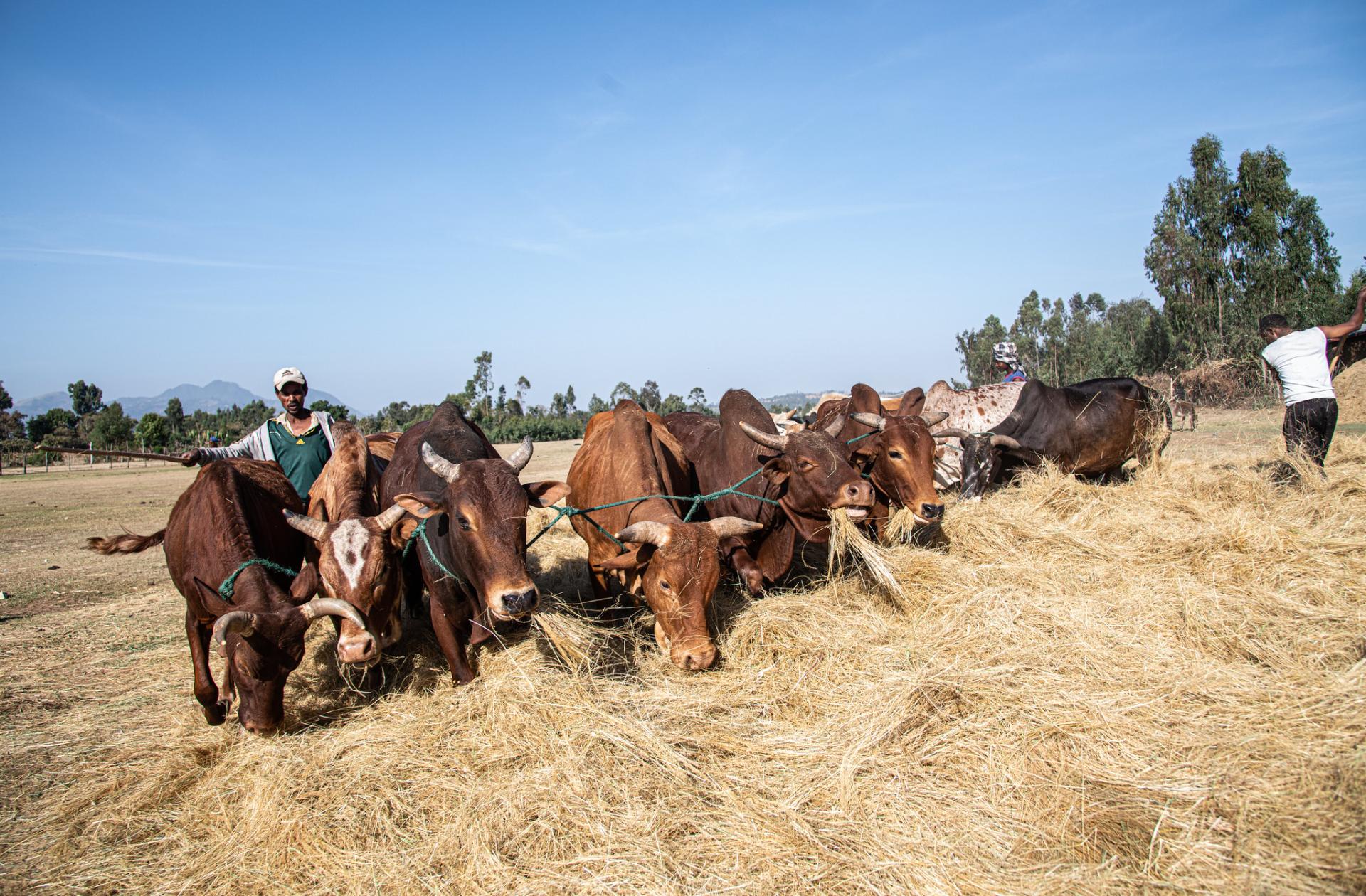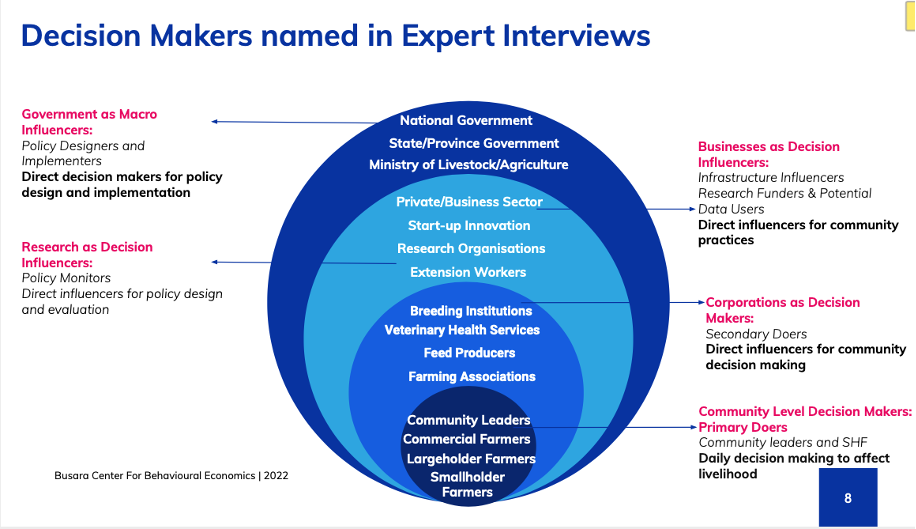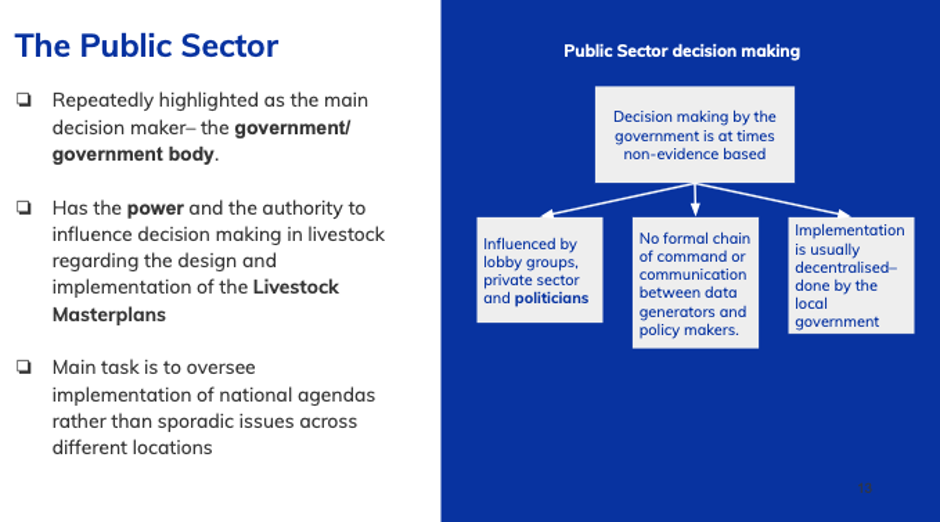Livestock Decision Maker needs study – latest findings

Update from our investigation into the data and evidence needs of livestock decision makers in low-and middle-income countries
By Vanessa Meadu
With a mission of “driving better livestock decisions through improved data and analysis,” the LD4D community has set out to learn more about the needs of livestock decision makers in low-and middle-income countries. The ambition is for decision maker’s data needs to be the driving force of LD4D work in the future. To this end, the LD4D secretariat has commissioned a study which we hope will generate insights about opportunities to make livestock data demand-driven, available and usable.
The LD4D Secretariat, which is hosted by SEBI-Livestock, has been working closely with the Kenya-based Busara Center for Behavioural Economics to develop a study around decision makers.
Phase 1 of this work set out to understand the overall landscape of livestock decision makers in LMICs through discussions with key informants from Nigeria, Ethiopia, South Africa, India and international/regional organizations. This will guide Phase 2 of the study, which aims to assess decision maker needs through focus group discussions with stakeholders. Phase 1 of the study is now complete, and the research team have shared some early insights.
Phase 1 findings: The Decision Maker Landscape
To kick-start the research, the study team interviewed experts working in the LMIC livestock community. One output of these discussions is a map of decision makers in LMICs who consume and use livestock related data, information and learning material. This map [see figure below] shows different decision maker groupings and outlines the kind of decisions they make that require data and evidence. One group of decision makers are characterised as ‘Doers’, or ‘micro decision makers’ at the grassroots level. Doers are directly impacted by livestock policies in their daily practices, operations and decision making. The other group of decision makers are ‘Influencers’, or ‘macro decision makers’, whose actions influence the decisions of the micro decision makers.

Through these initial conversations, the study team was able to identify some of the challenges facing Public Sector decision making, including reasons why decision making is at times not evidence-based. This includes the influence of lobby groups, a disconnect between data generators and policy makers, and challenges around decentralised implementation, which is further disconnected from policy making.

A final insight that emerged from Phase 1 is the need for focused research on Animal Health & Disease, and Feed – these were identified as key priorities for improved data, which would benefit the whole livestock sector.
Phase two planning now underway
The second phase of this study, planned for July 2022, will explore public sector decision maker needs. A series of targeted focus groups will take place to understand the demand across different decision maker groups, and the extent to which decision makers are used. The discussions will also be used to uncover the barriers and levers encountered by decision makers, which can be used to improve the way data and evidence is developed and used.
The study team have decided to look specifically at the policy context in Ethiopia and Bihar, India, and will use the Livestock Master Plan as a lens for understanding decision making challenges. The focus groups will address policy, strategy and data requirements relating to the Livestock Master Plan, how it is developed and implemented.
What’s next
The findings from the July focus group discussions will be shared in September with the LD4D Steering Committee, which will recommend some next steps. These will be discussed with the LD4D community later in the year.
Vanessa Meadu is Communications and Knowledge Exchange Specialist at SEBI-Livestock, which convenes the Livestock Data for Decisions (LD4D) community of practice.
Header photo: ILRI/ Georgina Smith (source)